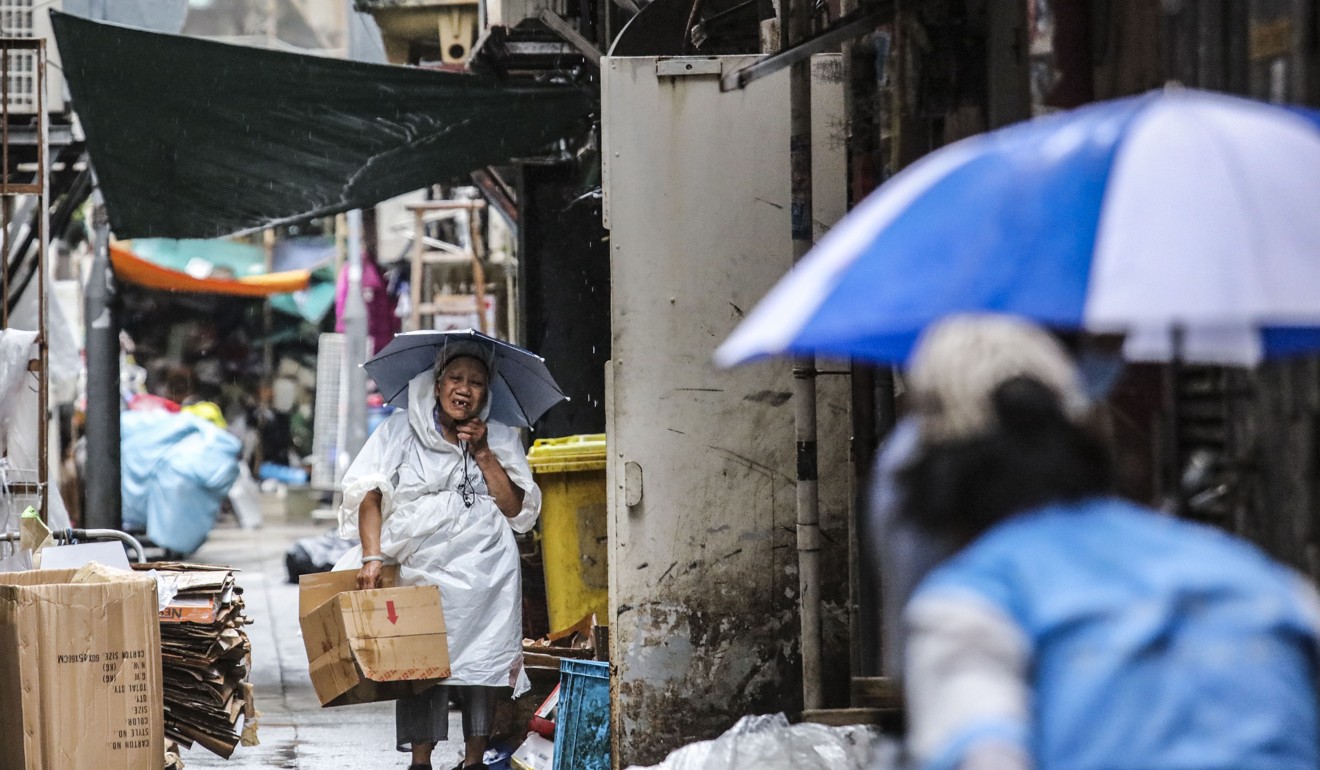
Hong Kong protests reveal a government failing to protect its citizens’ economic and social well-being
- The Hong Kong government has been more focused on global rankings and pleasing big companies than supporting its citizens. And in one international ranking – happiness – the city has been lagging, and this helps to explain protesters’ anger
What must the Hong Kong government do to resolve the social and economic deadlock? It’s not clear that anyone has the answer, but it has been evident so far that poor policymaking has provided no answers for the economic inequalities and social insecurity in society.
As the government fails to address economic equality and social security for its people, Hong Kong’s global economic position is weakened.
Over the years, the government has done little to aid those who suffer most from income inequality. When formulating economic and tax policies, officials have focused mainly on helping large enterprises thrive in the global market.

However, this globally focused economic policy lacks focus on an individual’s rights and interests and instead allows large enterprises unprecedented access to global economic resources. This has led to extreme economic inequality, and this disparity continues to grow.
Hong Kong was an unhappy city long before anti-government protests
Although it ranked ninth in GDP per capita globally, the city ranks ranked 76th in social support and 66th in freedom. This implies the government is failing to implement policies to enhance Hongkongers’ sense of social security.
The anti-government protesters are not restricted to local youth, but consist of men and women from different social spectrums. Not only are they fighting against structural injustice created by the government, they are also contesting policies that deny them socio-economic justice.
Why anti-mask law may be the tipping point for Hong Kong’s economy
The Hong Kong government has been apprehensive about carrying out social reforms because it is unsure how they may impact the city’s global economic status. Current economic policy cannot reduce local poverty, close the wealth gap or alleviate economic injustice for Hongkongers.
The world is watching closely to see whether the government can restore security to its people. The civil unrest in Hong Kong has rattled the confidence of the international community, which sees human rights being trampled. The Hong Kong government must revolutionise its political and social structures to curb socio-economic injustice once and for all.
First and foremost, the existing global-centric policy must not be at the expense of promoting well-being and ethical conduct in society. And officials must ensure they preserve people’s dignity and liberty, and stop power and wealth being hoarded by the rich.
Dr Enoch Hsu has been a transfer-pricing economist in China, Hong Kong, and the US since 1999 and was previously an economics professor at Santa Clara University

